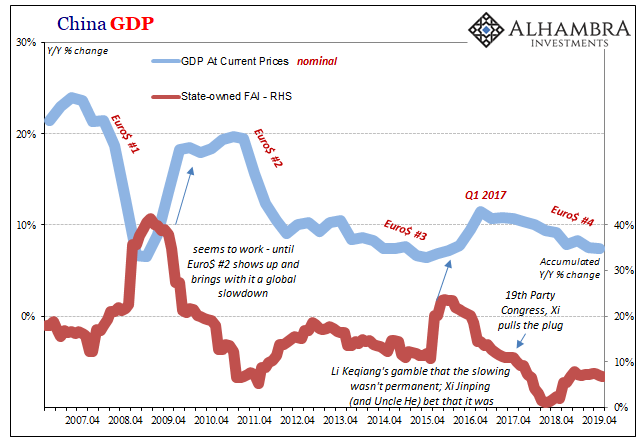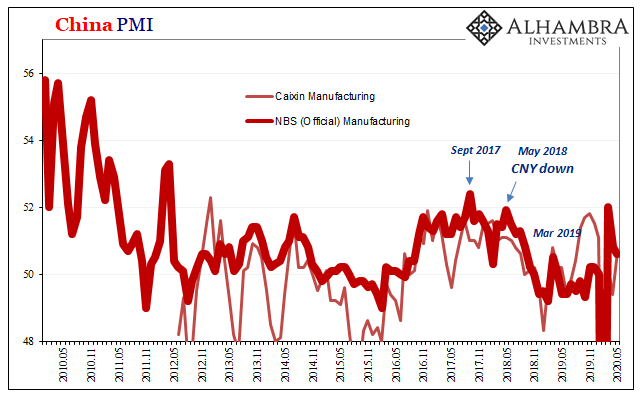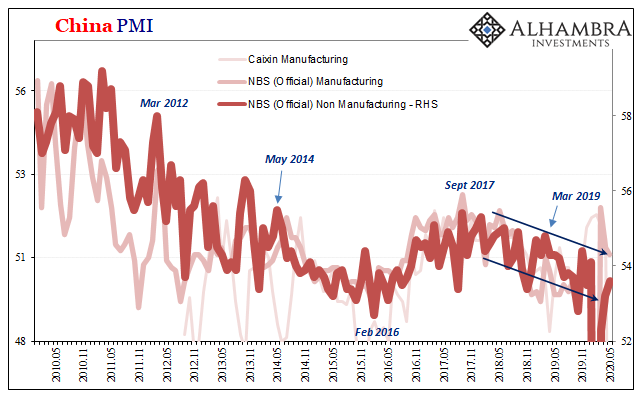In a scene straight out of the Stalinist playbook, no one dared anything but to do their part pitching in with thunderous applause. Five hundred deputies from across China’s Inner Mongolia Autonomous Region showed up at the regional “people’s” Congress in January 2018 to elect the delegates who would represent them and the region’s 25 million inhabitants at the National People’s Congress held in Beijing that March.
Of the 58 names put forward, it was just the one which caused so much fuss. Xi Jinping was one of those 58, quickly elected unanimously. Who wouldn’t want the Party Boss to represent their faraway districts? Who would dare oppose?
The affair was carefully orchestrated, as all things are with Communists (as well as communists). Why Inner Mongolia, you ask, out of all of China’s vast geography and diverse population centers? Because the region is diversity itself, home to 55 recognized ethnic groups.
In his unopposed selection, Xi was making a statement – all of China absolutely stands with him. In the close shadows of the 19th Party Congress held the prior October, and the consolidation of power surrounding him which took place during it, Inner Mongolia was undoubtedly Xi’s undisputed choice, too. In January 2018, accepting this honor, he had said:
I chose to participate in the elections in the Inner Mongolia Autonomous Region, expressing the importance of the Party Central Committee to the ethnic border areas and reflecting the Party Central Committee’s determination to accelerate the development of underdeveloped regions and win the tough battle against poverty.
Late in May 2020, China’s rubber stamp National People’s Congress belatedly convened with Inner Mongolia’s delegates in attendance. COVID-19 had disrupted the previously orchestrated schedule in more ways than one. What most people in the West took from it was Premiere Li Keqiang’s lack of a GDP target for this year.
What they may not have heard was Xi Jinping’s rationale for this. Attending, importantly, delegate’s discussions being held by the Inner Mongolia delegation, of which Xi is still apart, China’s Number One made it very plain where the Communist priorities were being placed.
According to Xinhua News Agency, he said the word “people” 28 times but his message wasn’t very much like his original acceptance of this posting. It doesn’t sound like Xi is much interested in that whole “battle against poverty” thing any longer.
In the final analysis, we promote economic and social development in order to continuously meet the people’s needs for a better life. We must always take people’s livelihood, safety, safety and security at heart, and work hard to solve the people’s concerns about employment, education, social security, medical care, and housing. Pension, food safety, social security, and other practical issues, one by one to implement, work year after year, and strive to let the masses see changes and get benefits.
A more holistic approach than the one which guided Xi’s predecessors, even Xi himself during the first several years of his beginning tenure (up until Euro$ #3 ruined it). Before, what guided Communist China was its Three Represents.
Proposed by Jiang Zemin and ratified at the 16th Party Congress in 2002: “The order of operation in China is by no accident. The Three Represents are being conducted in the same order they are given: economy, culture, politics.” Marxism as an economic policy was discarded (proven ineffective and in fact very dangerous; see: Soviet Union) in favor of a mixed-Western style free market (tried first under specific economic zones which, once they flourished, were expanded).
Thus, the Three Represents represented the Communists hitching a ride on free markets to become a modern economy – so long as it maintained its cultural, Maoist (sort of) characteristics. The end goal being the third on Jiang’s list, politics, for once China got rich while holding dear to its cultural identity it would open up the political system finally to the majority having completely, thoroughly, comprehensively proven Communism with Chinese Characteristics as the best of the best.
What majority wouldn’t agree, the point of a gun no longer necessary.
That was the plan, anyway, and it was derailed by GFC1 – except it took Euro$ #3 in 2015-16 for that to finally sink in as a permanent condition. Which led to the reprioritization in October 2017, at the 19th Party Congress when the first represent, the economy, was downgraded to “quality” growth.

Not before, of course, Xi let Li give it one more big try – the early 2016 Keynesian “stimulus” panic. Knowing full well it wasn’t likely to work, that whole affair with Uncle He, Xi was already prepping for the future more than four years ago.
This future:
If we rigidly set [a GDP target], then the focus will become strong stimulus and grasp the growth rate, which is not in line with the purpose of our economic and social development. We have been talking about not talking about heroes based on GDP growth rate. But, what we are pursuing is the scientific development of the economy, the implementation of the new development concept, and the pursuit of happiness and good life for the broad masses of the people. In fact, in pursuit of these, we will also indirectly promote the reduction of GDP as much as possible, but focus should not be on GDP growth. [emphasis added]
The above also a statement made at the Inner Mongolia delegation last month, understand what Xi Jinping altogether is saying. The government, according to the boss, has completely transformed its main concerns such that now the people come first, second, and third.
Authorities in all directives and departments have been told to put the health and well-being of every single one of China’s inhabitants, of all ethnic groups and regions, before every other priority whether it was prior law or operating mandate. Things are very different now.
In the context of COVID-19, how comforting all of a sudden. In the context of the economy following COVID-19, huh?
Hey, China, we meant to wreck the Chinese economy because we did it for you! We used to care about the economy, but now we don’t care about it at all because we only care about you!
It’s doesn’t quite deliver the same warm and fuzzy as Xi’s snappy (translated) quotes or Li’s backhanded rationale for some stimulus but not a lot of stimulus that probably won’t stimulate much beyond, he hopes, keeping everything from totally falling apart.
But at least China is free from having to put together a GDP target and forcing local governments to cheat in order to orchestrate meeting it. And this puts the Chinese Communists on par with Western especially American Economists. Xi like Jay Powell (and John Williams’ hyper-focus on R*) can now blame his own population for the lack of economic growth.
The Chinese National Bureau of Statistics released some updated PMI numbers for the month of May 2020. They don’t appear to have much force behind them, and certainly don’t fit the circumstances. The way PMI’s work, or are supposed to, after a massive shutdown and contraction there should be an equally massive upturn, as conditions begin normalizing and everything is harmonized in the opposite direction (the good direction).
The last thing you’d expect, or want to see, is PMI’s for unknown reasons just going right back to where they had previously left off as if the whole thing never happened. Just one month and record lows, and then nothing.
Then again, the economy doesn’t really matter as much anymore. Xi is putting “people” on notice.



Stay In Touch